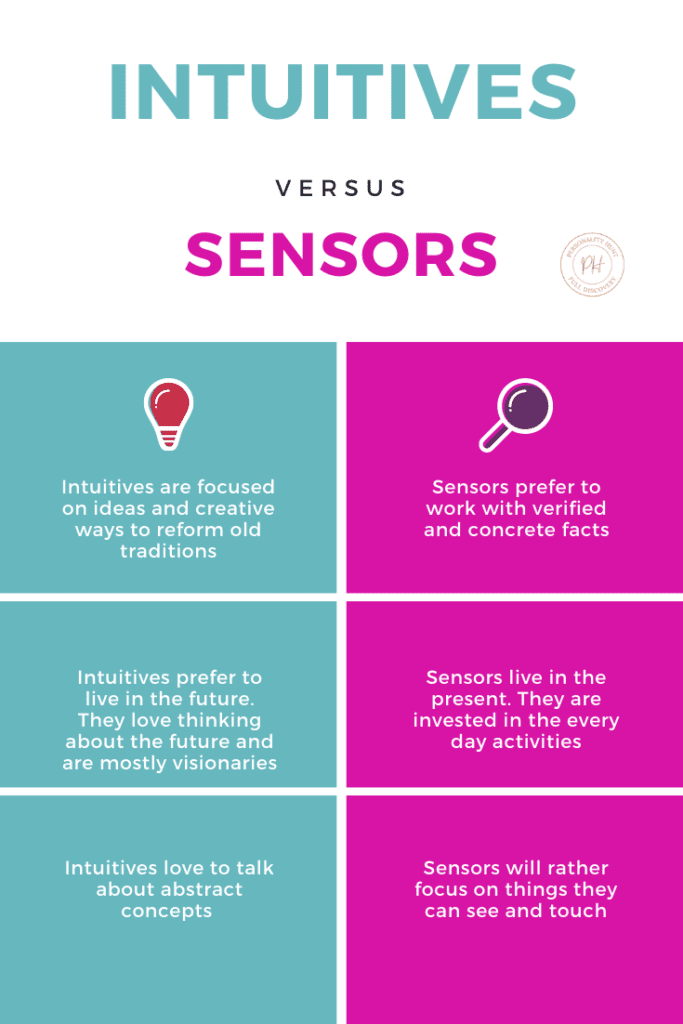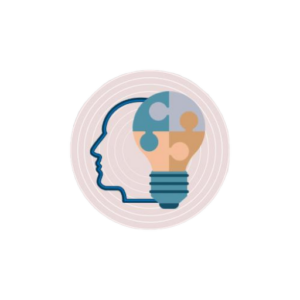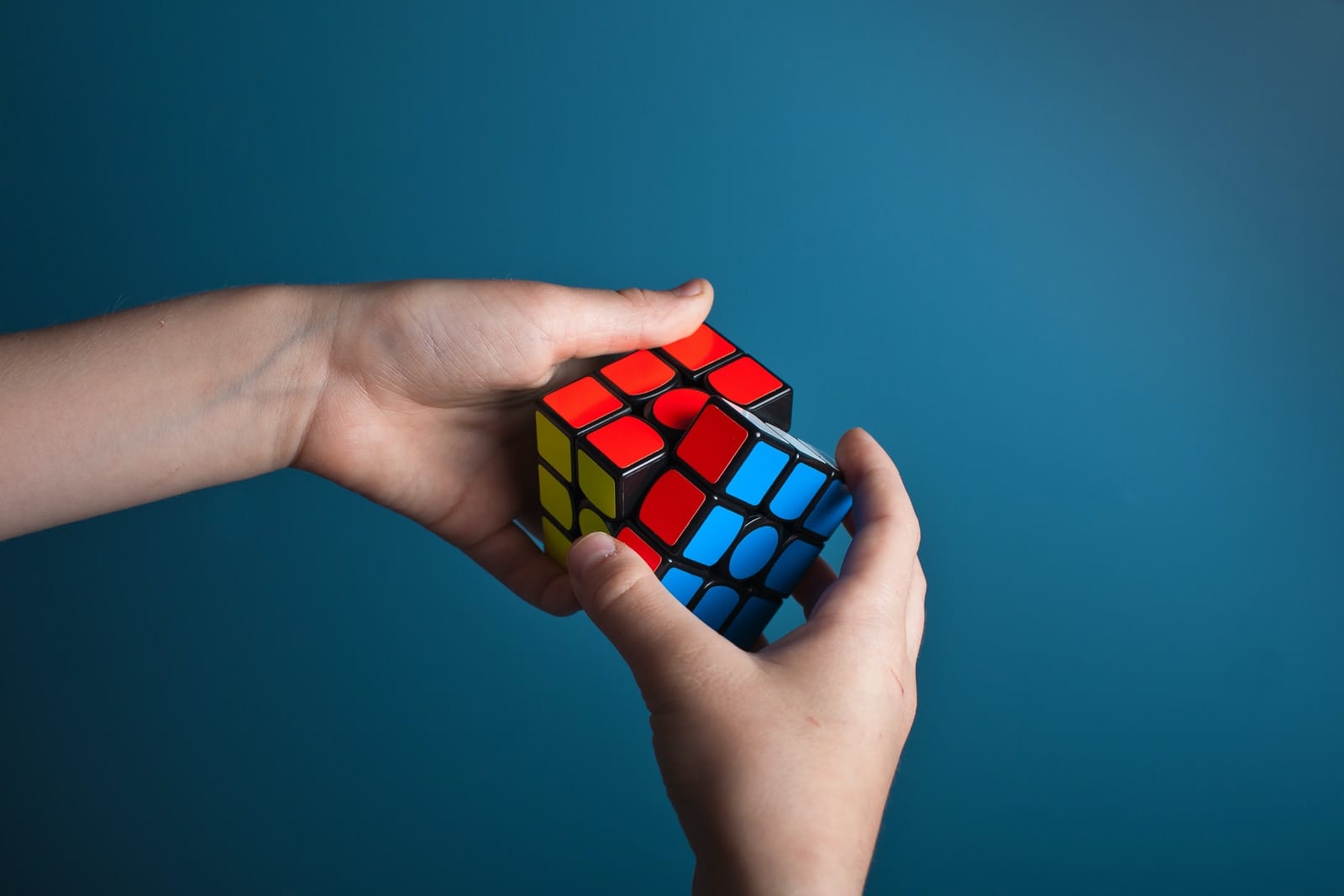Many people take the MBTI tests each year. Some have a pretty clear idea of what they are after taking the test. Others don’t. This is often because of the intuition and sensing problem. Your test might show that you are borderline when it comes to this function. For that reason, it might be good to do a little intuitives vs sensors analysis.
Intuition and sensing are the second letters of the MBTI. They are often referred to as S and N in the MBTI function stack. They control how we perceive and process our thoughts and information. Everyone has a bit of these two functions. However, one is always dominant.
So, in this article, we will consider what it means to be a sensor or intuitive person and how you can easily spot these traits in yourself.
Intuition and What It Means To Be Intuitive
If you are an intuitive person, then you will be very much interested in the theoretical world. Most intuitive persons are likely to be visionaries. This means that they spend a healthy amount of their time in their head.
They are also people who are brilliant at grasping very abstract ideas. They don’t just grasp them. Intuitives actually enjoy doing this! Intuitive rarely live in the present. They prefer to plan years into the future. Sometimes, this can cause problems if they neglect the present day to an extreme.
When the intuition is backed up by the Thinking (T) function, intuitives can solidify their beliefs with logic. This makes them much more accurate and precise. They are more likely to connect facts and ideas that might have no relation to each other on the surface.
Intuitives are most likely to have issues with tradition and conventional ideas. They struggle believing that things should be done a particular way just because that’s how it has always been done. It’s not surprising then that most inventors of our time have been intuitives.
If there is anything that the intuitives hate, it’s the need for routine. They value a creative and imaginative mind and will do everything in their power to avoid the torture of routine. Intuitives also do not appreciate the small talk. They prefer to have deep conversations about various topics and ideas.
Sensing and What It Means To Be a Sensor
Sensors are very pragmatic and down to earth people. They focus mostly on tangible things. This includes things that they can taste, smell or feel. They like to be in the present and use tested and verified data in their analysis of problems. They are big believers in traditional ideas and see no need for change if a particular way has always worked in the past.
Sensors will approach issues in their lives with a sense of clear direction and expectation. They particularly do not like to work with ideas and concepts that are considered abstract. A lot of sensors are good with their hands and will often be good bakers, cooks, or craftsmen.
Sensors also really have no problems with small talk. Unlike the intuitive, they are often willing and happy to have discussions on literal matters such as the weather.

Intuitives vs Sensors- MBTI Types
As you already know, there are at 16 personalities in the MBTI typology. Intuitives and sensors can be divided into eight different types.
For the intuitives, you have
- ENTP
- ENTJ
- ENFP
- ENFJ
- INTP
- INTJ
- INFJ
- INFP
For sensors, the types include
- ISFP
- ISFJ
- ISTJ
- ISTP
- ESTP
- ESFP
- ESTJ
- ESFJ
Related- INFP vs INFJ- How can you tell them apart?
Intuitives vs Sensors- at the Workplace
In a work environment, sensors and intuitives are needed for two completely different reasons. Sensors will fit in just right where there is clear and precise work to be done. They have no issues with routine work and will actually appreciate it. These types are reliable and hardworking people. A company with a good dose of sensors will always meet up with its targets and deadlines.
Intuitives, on the other hand, will do better in the creativity department. Because they are always looking for ways to improve already established ideas, they will help transform the company in the creative aspect. With a healthy dose of intuition, a company will always have an edge in its sector.
Therefore, some of the best careers for sensors include
- Administrative work
- Business analysts
- Accountants
- Lawyer
- Military personnel
- Doctors
- Humanitarian services
Some of the best careers for intuitive people include
- Scientist
- Musician
- Artist
- Lawyer
- Business analysts
- Lecturer
- Psychology
- Some aspects of the health sector
It is important to realize that while these are the preferred careers for both intuitives and sensors, each person can make it in any profession they choose to belong to. It just takes a lot more work and passion.
Intuitives vs Sensors- in a Relationship
Intuitive and sensors are very different in the way they approach relationships. For intuitive, they are always looking for ways to improve the relationship. They want to be spontaneous in the relationship and make their partner happy. They are always looking to the future. This might be a problem if their partner is a sensor.
To ensure that a relationship moves in the right direction, someone inclined towards intuition should strive to find a balance.
Sensors are the more pragmatic partners. They are often happy to live in the present. Thus, they are often the ones more interested in the everyday activities that take place in a relationship. They are very reliable partners and want their partners to be happy and comfortable.
If their partner is intuitive, they might struggle with understanding the future-oriented nature of their partner. However, a relationship with an intuitive will allow them to grow.
Intuitives Vs Sensors- Friendships
People who are inclined towards intuition are those friends that always want to have deep meaningful conversations. They are often into politics, the economy, and poetry. These friends can be counted on when it comes to adventures and spontaneous outings.
Sensors are reliable and firm companions. They are often into things such as baking and cooking. Friends can count on them if they need something done on time. When paired with the judging function, they are very organized and orderly. They also don’t mind some small talk once in a while.
Intuitives Vs Sensors-As Children
Let’s be clear. All children are born with a healthy dose of both intuition and sensing abilities. However, we are considering the dominant quality in a child. If a child is more intuitive, then they are more likely to be in touch with their creative side. They are also more likely to need a lot of space to themselves.
To get the most out of an intuitive child, the best way forward is to allow them to develop their creative side and thinking abilities. Also, an intuitive who also has the T (thinking) in MBTI will be less likely to put your sensitivity first while making a decision.
Sensors as children, on the other hand, are different from intuitives. They are most likely going to want a structured environment to strive. This does not mean that sensors as children do not want any form of variety. However, such variety must come in the way they like or understand.
So Where Do You Fit?
Are you an intuitive or a sensor? You should know that both types are equal in terms of ability and intelligence. They bring something unique to the table. If you run a business, you should figure out a way to make sure your sensor and intuitive are well-placed to lead the business to more success.




























